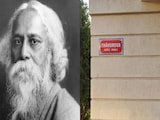Reaching for an antacid after a heavy meal or before bed has become as automatic for many people as brushing their teeth. In fact, in certain cultures in India, people rely on popular antacid brands to the extend that they won't step out of their homes without carrying them to ease digestion after eating out. These over-the-counter tablets and liquids neutralise stomach acid fast, offering quick relief from heartburn and indigestion. That ease, however, has a downside. When antacids or acid-suppressing medicines are overused and treated like candy, the short-term fix can turn into a long-term problem.
Occasional antacid use is generally safe, but regular, frequent use and prolonged courses of stronger acid blockers such as proton pump inhibitors (PPIs), are linked with several health risks. From upset electrolytes and gut microbiome changes to kidney injury and nutrient malabsorption, chronic acid suppression can affect organs far beyond the stomach. Worse, suppressing symptoms can sometimes mask warning signs of more serious conditions such as gastric cancer, delaying diagnosis.
So, here are the risks associated with antacid overuse, evidence-based guidance on when to see a clinician, and offers safer ways to manage heartburn without turning antacids into a daily habit.
What Antacids And Acid Blockers Do, And Why People Overuse Them
Antacids (calcium, magnesium or aluminium compounds) neutralise stomach acid quickly. H2 blockers and PPIs reduce acid production more persistently. Their rapid relief makes them attractive as a go-to remedy for every bout of heartburn, but that habit can hide an underlying problem that needs medical attention, not repeated self-treatment.
Short-term side effects of antacids: Common but often ignored
Taken occasionally and at recommended doses, antacids usually cause only mild side effects (constipation with calcium or aluminium types or diarrhoea with magnesium formulas). However, frequent dosing increases the chance of problems such as acid rebound (worse symptoms when the drug is stopped) and gastrointestinal upset. These are not trivial when they become chronic.
Serious concerns with long-term use of antacids
Longer courses, especially of PPIs or repeated heavy antacid use, carry more consequential risks. Observational studies and reviews associate chronic acid suppression with kidney disease, increased risk of certain infections, bone fractures, and deficiencies of nutrients that require stomach acid for absorption (like vitamin B12). Importantly, prolonged symptom relief can mask red-flag signs of gastric or oesophageal cancer and delay investigation. That means "feeling better" is not always the same as "being safe."
Antacids, minerals and the kidneys: Who is most at risk?
Antacids containing magnesium or aluminium can be harmful when used repeatedly in people with impaired kidney function because these metals are normally cleared by the kidneys. Excess magnesium can cause weakness and cardiac rhythm disturbances; aluminium accumulation can be toxic in severe kidney disease. That makes unsupervised, frequent antacid use particularly risky for older adults and people with chronic kidney disease.
When antacids might be masking something serious
If heartburn or indigestion occurs frequently (several times a week), is severe, or is accompanied by weight loss, difficulty swallowing, vomiting, or persistent abdominal pain, these are signals that require medical evaluation. Using antacids to "treat" such symptoms repeatedly may hide conditions that need tests or specialist care, and, in some cases, early cancer detection depends on timely investigation rather than symptom suppression.
Safer ways to manage heartburn (before reaching for antacids)
Simple lifestyle changes often reduce the need for medication:
- Eating smaller meals
- Avoiding trigger foods (fried, spicy, caffeinated or fatty foods)
- Not lying down soon after eating
- Losing excess weight
- Quitting smoking and limiting alcohol
- Elevating the head of the bed
- Wearing looser clothing around the waist
Please note: For occasional, mild symptoms, a single antacid dose is acceptable, but regular reliance calls for a doctor's review.
How to use acid antacids responsibly
- Use antacids only when needed and follow the package dose instructions.
- If symptoms are frequent (more than twice weekly), see a doctor rather than self-treat.
- If prescribed a PPI, take the lowest effective dose for the shortest necessary period and review the need regularly with your clinician. Guidance from health services recommends stepping down or stopping PPIs when appropriate to avoid rebound acid.
- Mention all medicines to your doctor as antacids can interfere with the absorption and timing of other drugs.
When to see a doctor: Quick checklist
Seek urgent care or specialist review if you have:
- Unintended weight loss
- Difficulty swallowing
- Persistent vomiting
- Black or bloody stools
- Chest pain
- Severe abdominal pain
Also consult your doctor before using antacids long-term if you have kidney disease, heart disease, or take multiple prescription medicines.
Antacids are useful tools when used occasionally and correctly, but they are not harmless candy. Habitual use after every meal can lead to real medical problems, mask serious disease, and create dependencies that complicate treatment. If heartburn is a frequent companion at the dinner table, the smarter move is a conversation with a clinician to diagnose the cause, consider lifestyle fixes, and use medications, not just antacids, carefully and under supervision. That way you get relief and safety, not just a temporary quieting of symptoms that may be trying to tell you something important.
Disclaimer: This content including advice provides generic information only. It is in no way a substitute for a qualified medical opinion. Always consult a specialist or your own doctor for more information. NDTV does not claim responsibility for this information.















